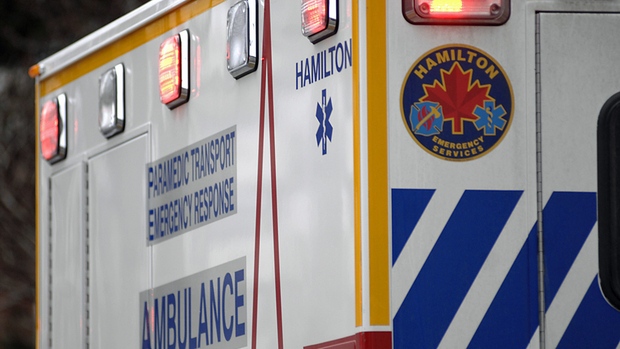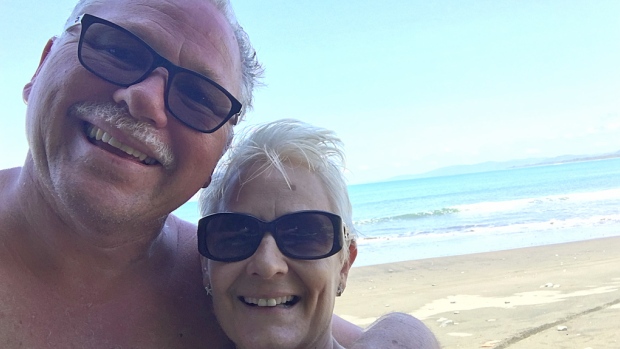Costa Rica News – After breaking his pelvis, back and arm in a fall in a Central American jungle, a Hamilton man and his wife say they are now stuck in Costa Rica — because there is no hospital bed for him to come back to in Ontario.
Kristen Ronald says she and her husband David are shocked at the state of the province’s overcrowded health-care system, and just want to go home.
“I just never imagined the one thing that would keep us here is a bed,” she said on the phone from Costa Rica. “It’s so frustrating.”
The province disputes that there were no ICU beds available in the area over the weekend, and officials say they’re not sure if the couple’s insurer contacted all hospitals in the region.
But if that’s the case, it’s unclear why the pair are still in Costa Rica.
The couple’s ordeal began on Feb. 15, when they were visiting friends who live in Pavones, a small community located along the southern Pacific Coast.
David and Kristen were sleeping on a large deck at their friend’s home. David woke up at around 2 a.m., and slipped and fell over three-and-a-half metres off the deck, breaking his pelvis, back and arm.
The situation looked dire — but luckily, the friend they were visiting is a paramedic. He managed to get David stable, and they drove the retired Dofasco employee 50 minutes out of the jungle on a makeshift backboard in the back of a pickup truck to the nearest medical facility.
Ronald was rushed into emergency surgery to repair his pelvis. Once that was successful, his insurance company planned to fly him home for a second surgery to repair his back.
There was just one problem — there were no beds available.
“There was just no space in ICU,” his wife said. “They had to go ahead with the second operation here in Costa Rica.”
Ready to travel but nowhere to go
Ever since Feb. 17, the Ronalds have been trying to get back to Ontario, but they keep hearing from their insurance company that there are no beds available. Until one opens up, they can’t transport him.
While they are lauding the care they’ve received in Costa Rica, they are now desperate to get home, Kristen said.
 “He’s ready to travel, they have an air ambulance, and they’re ready to bring him home,” she said.
“He’s ready to travel, they have an air ambulance, and they’re ready to bring him home,” she said.
“Sometimes I wonder if he’d even get the level of care he’s gotten here in Ontario.”
In a statement to CBC, Minister of Health Eric Hoskins said that an “average of 10 ICU beds were available throughout the Hamilton Niagara LHIN this past weekend.”
“However, we cannot verify whether the insurer contacted all hospitals in the region,” he wrote.
Hoskins also offered his “deepest concern” for the family.
“It’s stressful any time a loved one is injured or requires surgery, whether that be here in Ontario or abroad. I know there’s nothing more important to all of us than the health and safety of our loved ones,” he wrote.
“What is important now is that we make the full service of Ontario’s health care system completely available to this family.”
Provincial NDP leader Andrea Horwath denounced the situation at a Wednesday morning press conference, blaming the couple’s plight on “decades of health care cuts” by the Liberals and Conservatives.
“Imagine being hurt, and stuck in a foreign country. You want to come home, to get care in the hospital you know and trust. But you’re turned away because the hospitals are so crowded there’s no room for you,” she said. “That’s absolutely not the kind of health care system people in Hamilton, and throughout this great province, deserve. These cuts — cuts that have been going on for years — have to stop.”
“The health care services we count on the most are strained to the breaking point.”
Overcrowding a pressing issue
The overcrowding in Hamilton’s hospitals has come into sharp focus in recent months.
Hamilton Health Sciences has been consistently over 105 per cent capacity since October 2016, officials told CBC News last month. St. Joe’s, meanwhile, was 28 beds over capacity in the same timeframe.
Last summer, Hamilton Health Sciences announced it was cutting $20 million in costs from its budget, with another $7 million in similar cuts coming at St. Joseph’s Healthcare.
In an email, a spokesperson for the Ministry of Health and Long Term Care said the province has invested $500 million in new funding for Ontario hospitals, with an increase of $8 million in 2017/2018 compared to the previous year at St. Joe’s, and an increase of $16.8 million at Hamilton Health Sciences, over the same time period.
Overcrowding issues have contributed to a rise in code zero ambulance emergencies, which skyrocketed to their highest monthly level in five years in January.
A code zero is when there is only one — or even zero — ambulances across the service’s entire fleet available for a call.
The city says long hospital offload delays and increasing service demands are major contributors to the frequency of code zero alerts.
Hamilton has seen 911 calls for help spike over 5 per cent, the city says, coupled with a more than 20 per cent drop off in hospital offload performance at local emergency rooms, and that was an area where Hamilton was already lagging behind the provincial standard.
Horwath says numbers like these show that more needs to be done to improve health care in the province.
“Hospital workers are working off their feet to meet the need,” she said. “I’ve heard from health care workers who leave their shifts in tears … it’s horrifying.
“We need hospitals that have room for Ontarians when they need it most.”
By Adam Carter, CBC News

